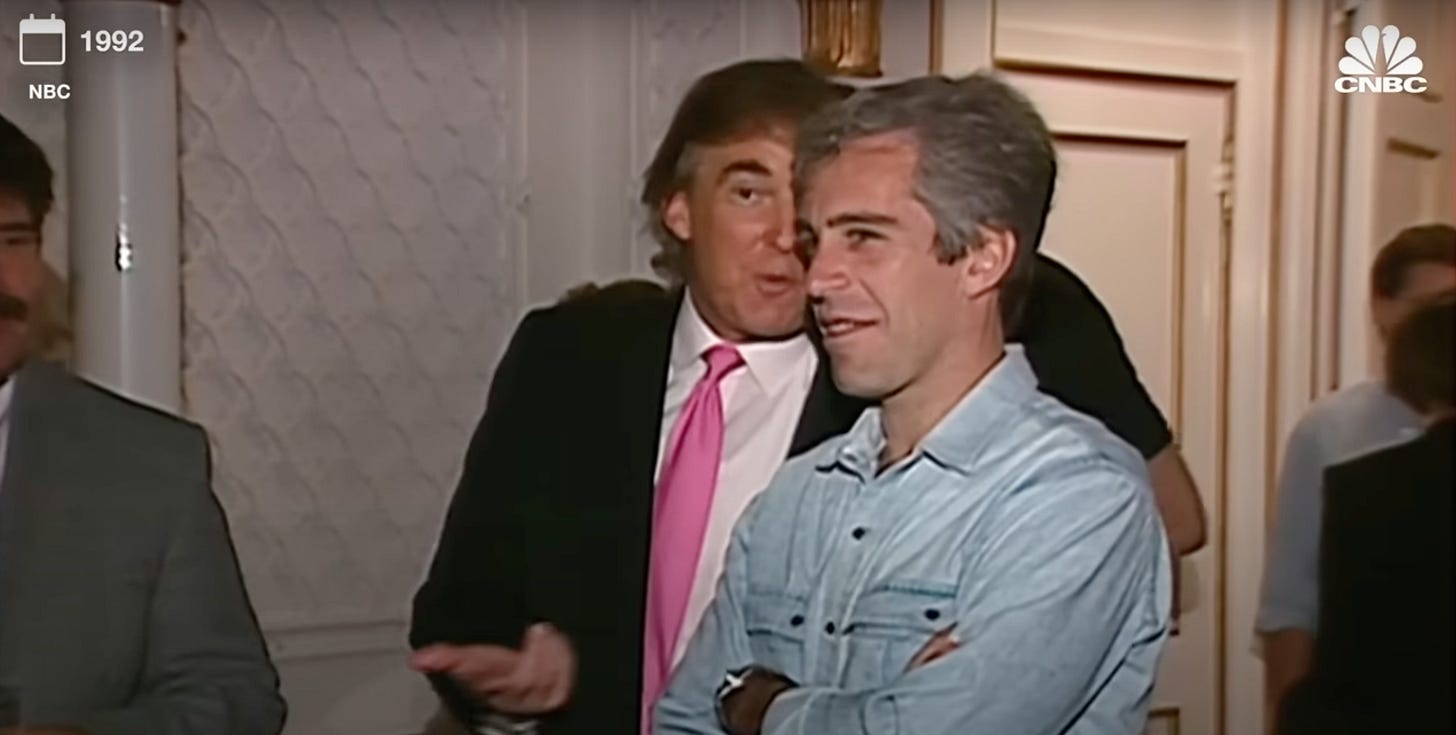‘She’s Not Here for You’: Trump’s Disturbing Night in Epstein’s Orbit
Maria Farmer’s chilling allegations expose the disturbing Trump-Epstein connection and the power shielding it from scrutiny

In the summer of 1996, Maria Farmer entered a New York police precinct to report the abuse she suffered at the hands of Jeffrey Epstein and Ghislaine Maxwell — and a chilling encounter with Donald J. Trump, years before his presidency — as reported by The New York Times.
A Midnight That Still Haunts
Farmer, then in her mid-20s and working for Epstein as an artist and gatekeeper at his Upper East Side townhouse, said Epstein summoned her late one night in 1995 to his New York office. Wearing running shorts, she arrived to find Trump in a business suit, hovering nearby and staring at her legs.
“I felt scared,” Farmer told authorities. She recalled Epstein entering the room and telling Trump: “No, no. She’s not here for you,” before both men left. Farmer said she overheard Trump remark that he thought she was “16 years old,” a comment that left her shaken and confused.
That encounter, she said, stayed with her long after she left Epstein’s employment. “It showed me how Epstein operated,” she said. “He surrounded himself with powerful men who treated young women like they were nothing.”
Fear, Silence, and Unanswered Questions
Farmer said she endured threats, harassment, and sexual assault by Epstein and Maxwell in 1996, and she has long wondered what law enforcement did with her complaints. Though she lacked direct evidence of criminal conduct by Epstein’s associates, she repeatedly told the FBI and police that Epstein’s circle — including Trump and former President Bill Clinton — was deeply troubling.
“I raised his name both times,” she said of her 1996 and 2006 interviews. Her sister Annie Farmer, who testified during Maxwell’s 2021 trial about her own abuse, recalled Maria speaking of her fear and determination to report what she saw. “She told me back then she was scared but felt she had to tell someone,” Annie said.
Some advocates for survivors have described Farmer’s account as a sobering reminder of how institutions too often fail survivors and shield the powerful — a sentiment reflected in many similar cases.
What They Chose Not to See
The White House has denied Farmer’s account, with communications director Steven Cheung stating: “The president was never in his office. The fact is that the president kicked him out of his club for being a creep.”
Trump has denied wrongdoing, dismissed calls for further disclosures as politically motivated, and sued the Wall Street Journal over claims he sent Epstein a sexually suggestive birthday greeting in 2003.
Farmer remains convinced her warnings were ignored. FBI notes from 2006 confirm she was referred by the NYPD’s Sixth Precinct, but the released records are heavily redacted and omit Trump’s name.
Epstein’s files are believed to contain a trove of evidence — much of it never revealed — about his ties to prominent figures, flight logs, visitor lists, and testimonies. Trump’s name appears in some documents alongside other high-profile individuals, though no charges have ever been brought against him.
When Power Shields Abuse — and the Questions That Won’t Go Away
The Epstein case epitomizes how power can shield abuse, fitting a broader pattern of institutional deference seen in scandals from the Catholic Church to Hollywood’s #MeToo reckoning. Survivors, often young and vulnerable, are silenced while perpetrators enjoy protection. Nearly three decades after Maria Farmer first came forward, her story remains a stark reminder of that dynamic — revealing not just Epstein’s crimes but how institutions failed to act. Her account, corroborated by her sister and police records, exposes how influence and status have a way of obstructing accountability, even in the face of evidence.
Trump’s name still surfaces in flight logs, visitor records, videos, and witness statements, even as he maintains his distance from Epstein.
The silence of officials, despite testimony and documentation, underscores how easily power can smother scrutiny — and why relentless questioning remains essential.




A picture is worth a thousand words.
The truth will come out. It always does. The culture of rape is insidious and perpetuating. The Mighty must fall